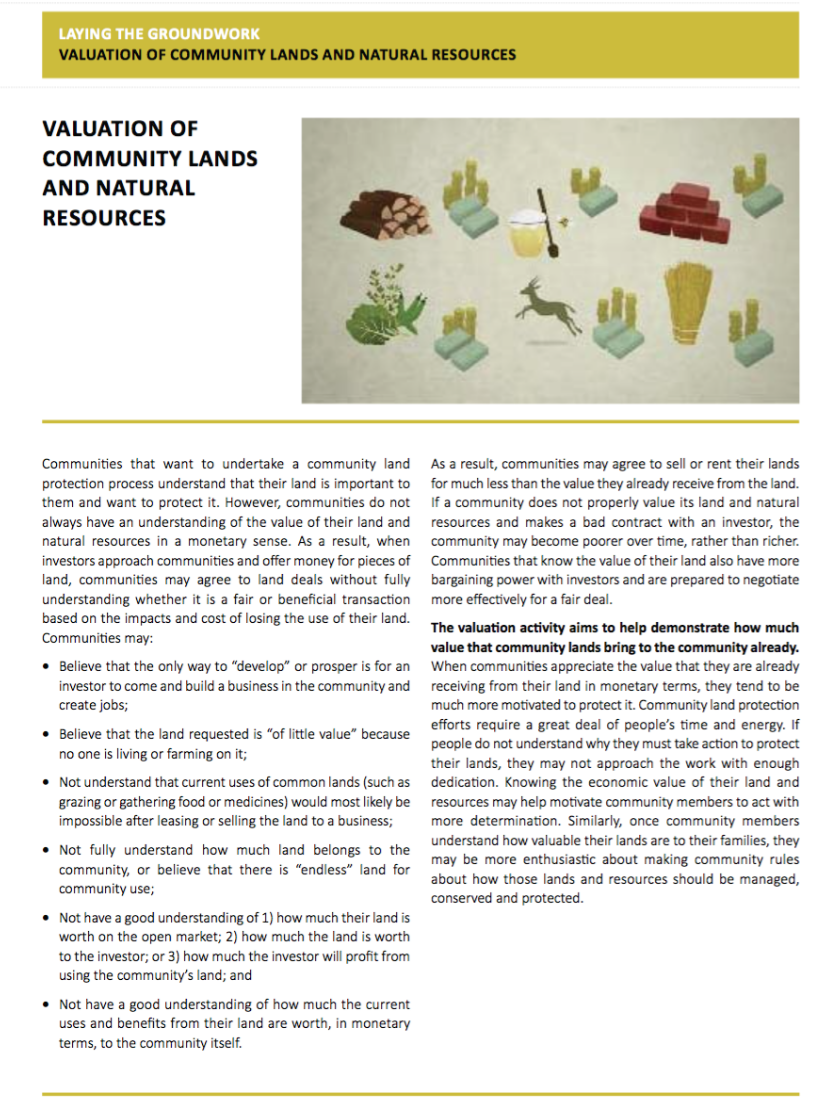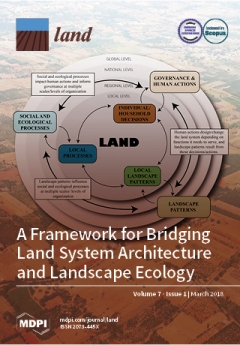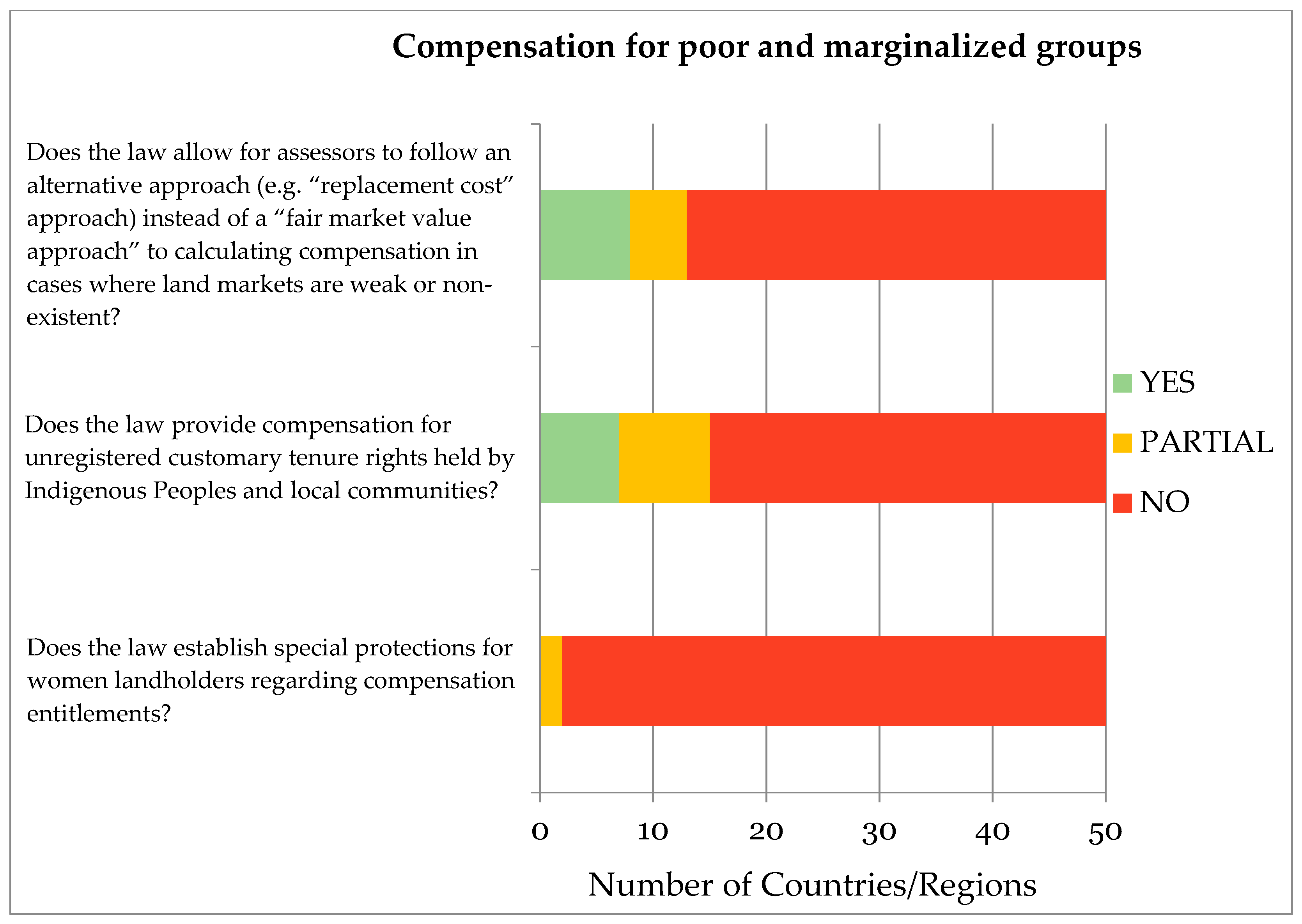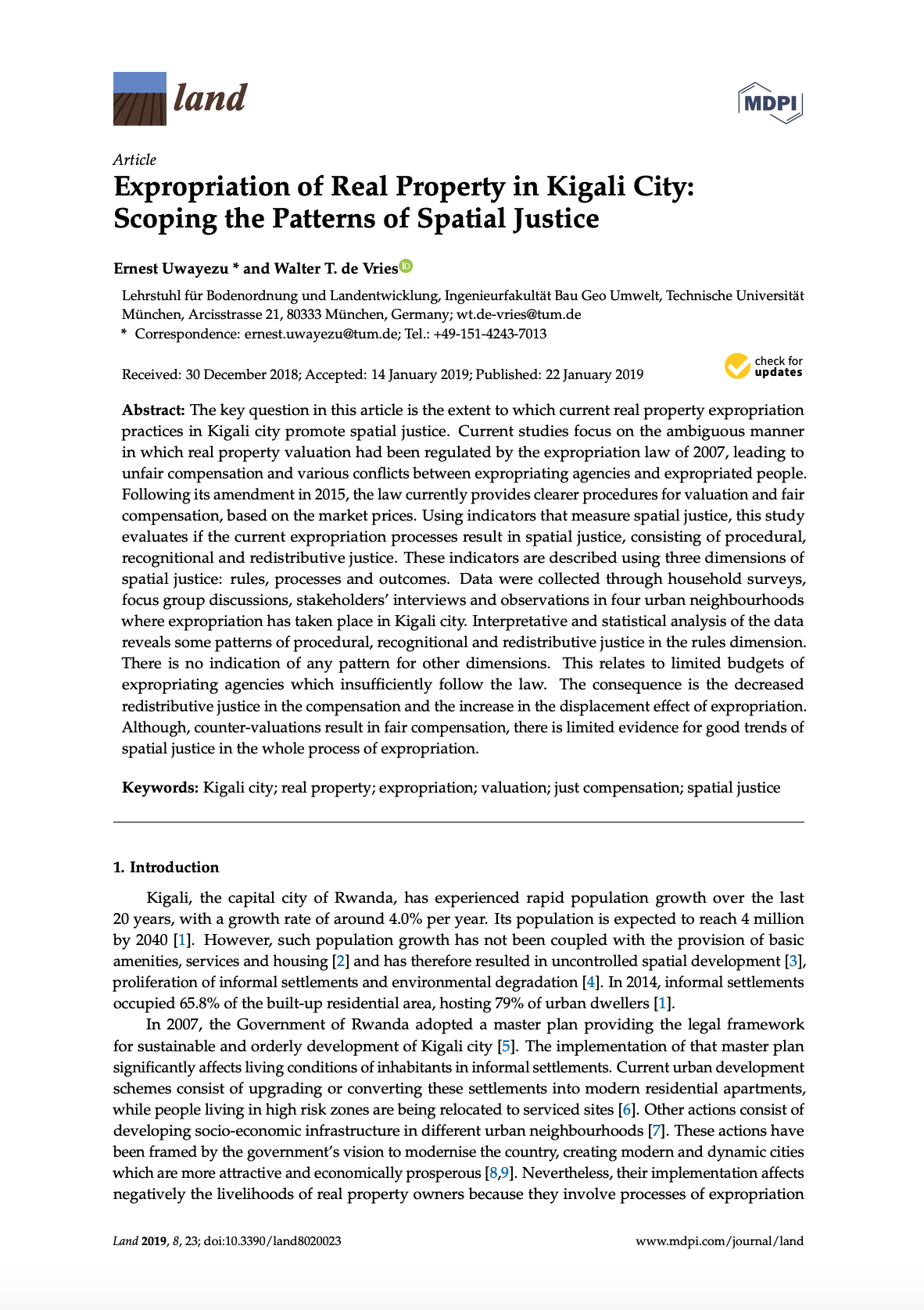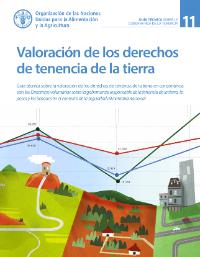Valuation of Community Lands and Natural Resources
A chapter from the Guide that explains the Valuation activity, designed to build awareness of the value of common lands and natural resources and increase community motivation to complete the community land protection process.
______

